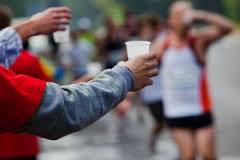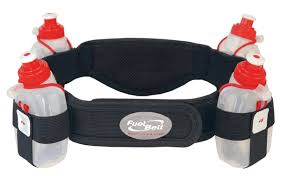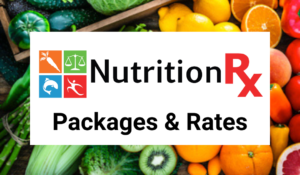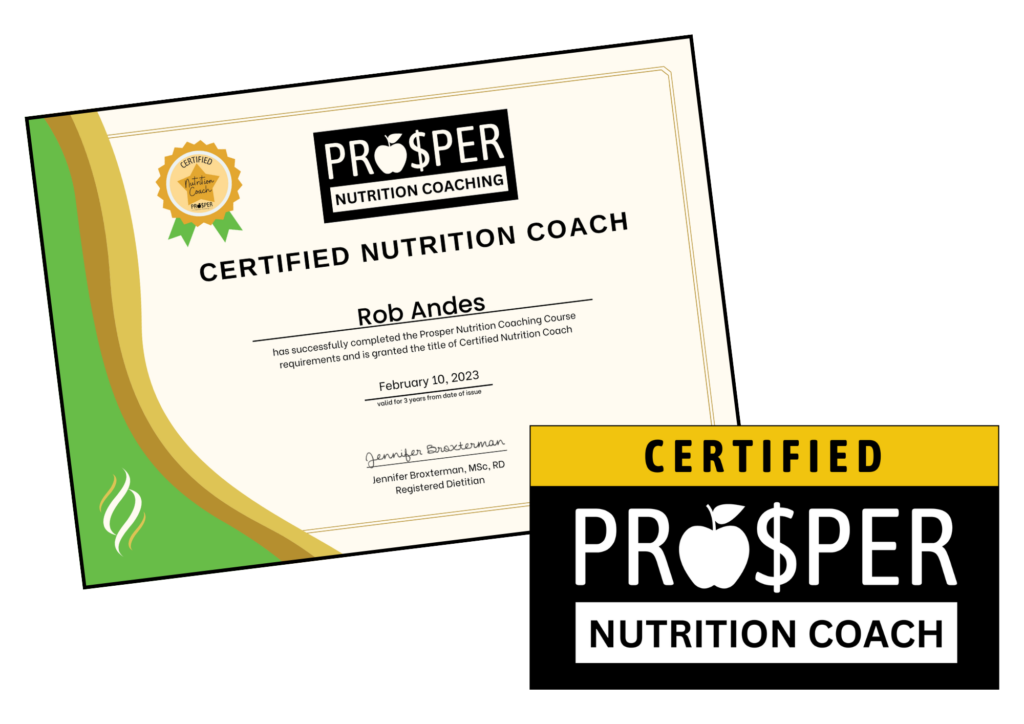

Practical Examples of How to Fuel on Long Runs
In Part 1 of this article (How to Fuel on Long Runs), the benefits of fuelling during prolonged exercise were discussed. There are many options for foods or supplements containing fluid, carbohydrates, and electrolytes to consume during exercise, and the amount and type used can really depend on the athlete and how their body responds best through testing in training and competition. Below are some examples of what refuelling during a race may look like for people running a 10 km race, a half-marathon, and half-ironman.
10 km Race
John is running a 10 km race. His goal time is 50 minutes, so he doesn’t plan to consume any sports supplements during the race, but he ensures he shows up on race day well hydrated and fuelled so his glycogen levels are topped up. It is a hot and humid day, so he plans to rehydrate with water along the water stops.

20 minutes: Few gulps of water (300 mL)
40 minutes: Few gulps of water (300 mL)
TOTAL fuel and fluid consumed (50-minute period):
600 mL water
0 mL sport drink
0 gels
0 g carbohydrate
Half-Marathon
A half marathon consists of running 13.1 miles or 21.1 km.
Abby has been training for a half marathon and used her longer runs to test which fuel works best for her body. She is running a half-marathon race, and her goal time is 2 hours. Sports nutrition protocol recommends consuming between 30-60 g of carbohydrate per hour of exercise. With Abby’s sweat rates, her fluid needs are approximately 3 cups per hour.
The sport drink, Gatorade G Series (Fruit Punch flavour) Abby has practiced training with provides 16 g of carbohydrate per 250 mL and the GU Energy Gel (Vanilla Bean flavour) contains 22 g of carbohydrate.
15 minutes: 250 mL water at water station
30 minutes: 1/2 Gu Energy Gel (11 g of carbohydrate) + 200 mL water
45 minutes: 200 mL water at water station
1 hour: 200 mL of Gatorade (13 g of carbohydrate)
1 hour 20 minutes: 1/2 Gu Energy Gel (11g of carbohydrate) + 200 mL water
1 hour 40 minutes: 300 mL of Gatorade (19 g of carbohydrate)
TOTAL fuel and fluid consumed
(2-hour period):
850 mL water
400 mL sport drink
1 gel
54 g carbohydrate

Half-Ironman
A Half-Ironman covers a total distance of 70.3 miles or 113 km. This includes a 1.2 mile swim (1.9 km), 56 mile (90 km) bike, and 13.1 mile (21.1 km) run.
Jenna is competing in a half-ironman race. She won’t be able to take in any fluid or food during the swim, but will start fuelling on the bike.
Swim – nothing consumed, takes 50 minutes to complete.
Bike – The bike portion takes her 3 hours total. She dilutes her sports drink slightly (3 cups sports drink + 1 cup water = 1L total that she drinks per hour) on the bike so that she can consume more fluids. Then she makes up the rest of her carbohydrate needs with dates (3 dates contain 20 g of carbohydrates).
15 minutes: 250 mL Gatorade + 3 dates
30 minutes: 250 mL Gatorade
45 minutes: 250 mL Gatorade
1 hour: 250 mL Gatorade + 3 dates
1 hour 15 minutes: 250 mL Gatorade
1 hour 30 minutes: 250 mL Gatorade
1 hour 45 minutes: 250 mL Gatorade + 3 dates
2 hours: 250 mL Gatorade
2 hours 15 minutes: 250 mL Gatorade
2 hours 30 minutes: 250 mL Gatorade + 3 dates
2 hours 45 minutes: 250 mL Gatorade
3 hours: 250 mL Gatorade

Run – The run takes her 2 hours and 20 minutes in total. She alternates between Clif Bloks Energy Chews (Citrus flavour) and Gatorade (not diluted). Three of the chews contain 24 g of carbohydrate.
15 minutes: 200mL of Gatorade
30 minutes: 3 Clif Bloks Energy Chews + 200 mL of water
1 hour: 250 mL Gatorade
1 hour 20 minutes: 3 Clif Bloks Energy chews + 200 mL water
1 hour 40 minutes: 250 mL Gatorade
2 hour: 1 Clif Bloks Energy Chew + 100 mL water
TOTAL fuel and fluid consumed (5 hour 20 minute period):
1150 mL water
2950 mL sport drink
12 dates
7 Energy Chews
208 g carbohydrate
Final Note
Each person used their training sessions to find out what works best for them. Personal needs may depend on many factors like exercise intensity, individual needs, and sweat rates, but the above are some examples to give ideas of what fuelling strategies may look like in a race.
Wishing you health & happiness,
♡ Jen
Jennifer Broxterman, MSc, RD
Registered Dietitian
NutritionRx: happy, healthy living with our team of Registered Dietitians
Prosper Nutrition Coaching: a world-class nutrition coaching certification
+
+
+
Want to work with a NutritionRx Registered Dietitian?
Learn more here: Nutrition Packages & Rates
+
+
+
Want to become a Certified Nutrition Coach?
Learn more about our habits-based Prosper Nutrition Certification



